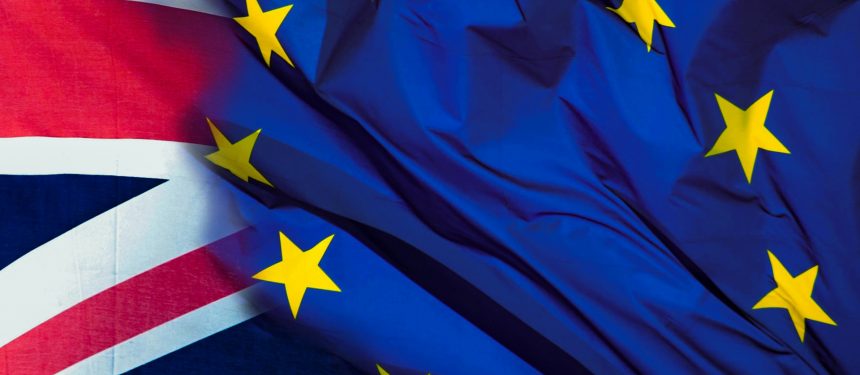Universities UK will be pushing for the UK government to extend the fee freeze for EU students – currently in place for September 2020 enrolments – for a further year, while the transition negotiations are in process between the UK and the European Union.
News and business analysis for Professionals in International Education
Have some pie!
Erasmus+ is priority for UK, as UUKi confirms fee freeze campaign
 Negotiations on tuition fees in the UK for EU students are ongoing. Photo: Needpix
Negotiations on tuition fees in the UK for EU students are ongoing. Photo: Needpix Speaking with The PIE News, Vivienne Stern, director of UUKi, pointed out that the recruitment cycle was already in play for 2021 enrolments, which includes masters programs that begin in January 2021.
“The government will have to make a decision on [fee status],” she observed, “and we will be lobbying for one more year [of EU students treated as UK-domiciled students] until we make a transition beyond that.”
Stern, speaking while at a quarterly meeting of the European University Association in Brussels, also underlined the importance the sector attached to the country remaining in the Erasmus+ mobility scheme.
“I will be working very hard to make [decision makers] understand the value of Erasmus+ beyond money in, money out,” said Stern.
“Those students who have studied abroad do better in employment terms,” she said, one factor among many benefits outlined in a UUK policy briefing.
“I hope the government takes a broad view on the evidential benefits of Erasmus+.”
Spending the eve of Brexit in Brussels, Stern said the reason for the joint statement made with European associations was “not to underline what we want but to stress, do this as soon as you can”.
“Erasmus plays a very important balancing role”
Simon Marginson, professor of Higher Education at the University of Oxford, also believes that the UK’s ongoing participation in Erasmus+ is a priority.
“I think maintaining Erasmus is the big issue for us,” he told The PIE, pointing out the volume of students involved each year.
“Erasmus plays a very important balancing role. The UK’s got a commercial approach to international education outside Europe. You know, it’s quite an aggressive commercial approach and that has some effect on the way in which international education is practised and seen on campus.
“But having big Erasmus communities provides a broader experience for the internationals from other places and also ensures that educational and cultural values are at the forefront as well in the UK’s internationalisation.”
Marginson said that with a PM who was more “cosmopolitan” than his predecessor and the support of universities minister, Chris Skidmore, it was likely that ongoing inclusion in the scheme could happen.
“The government’s committed to it, I think that’s genuine,” he said.
“Their response to the amendment that was defeated was ‘No, we support the principle, we just can’t make these kinds of exceptions in the legislation’.”
While there has also been focus on research (and sister scheme Horizon2020), Marginson posited that in higher education, “it’s all about people, and it’s about students more than anything else. And [Erasmus] is the big scheme in terms of the cultural change that it brings to all of its partners.”
Regarding future projections for EU student recruitment after the transition period and in a new fee era, Stern acknowledged that she expected there would be an adverse impact.
But she was positive on the enduring appeal of the UK’s “high quality” system and expectant that new scholarship vehicles may become available.
“I think some universities’ projections are overly pessimistic,” she said. “Students, willing to pay £9,000 per year already, in the case that they may have to pay international fees, may still consider the once-in-a-lifetime opportunity and [decide to come].”
“Some universities’ projections are overly pessimistic”
There would be clear communications on what sort of financial support might be available for European students, as well as scholarship schemes to consider, she said.
Marginson, meanwhile, suggested that China might be the country that levels out any shortfall in EU student recruitment in the longer-term, and warned of an increasing imbalance in nationality mix this could herald.
“There’s only a certain number of countries where you can actually turn the tap on and let more water flow through, China being the main one,” he advised – pointing out other markets may need further development.
“I think everyone knows that there won’t be any short-term alternatives at scale. So, you know, you could see problems developing around the diversity of intake.”
However, Sarah Cooper, who is stepping down today as chief executive of English UK, says she remains “optimistic for the future of UK ELT” despite “all the uncertainty during this period”.
“Engagement with government and our colleagues in the wider international education industry has never been so positive and encouraging,” she told The PIE.
“Government appreciation of the quality, breadth and innovation in UK ELT, including teacher training, is strong, as is the understanding of the complexity of the overall international student journey.”
Still looking? Find by category:


